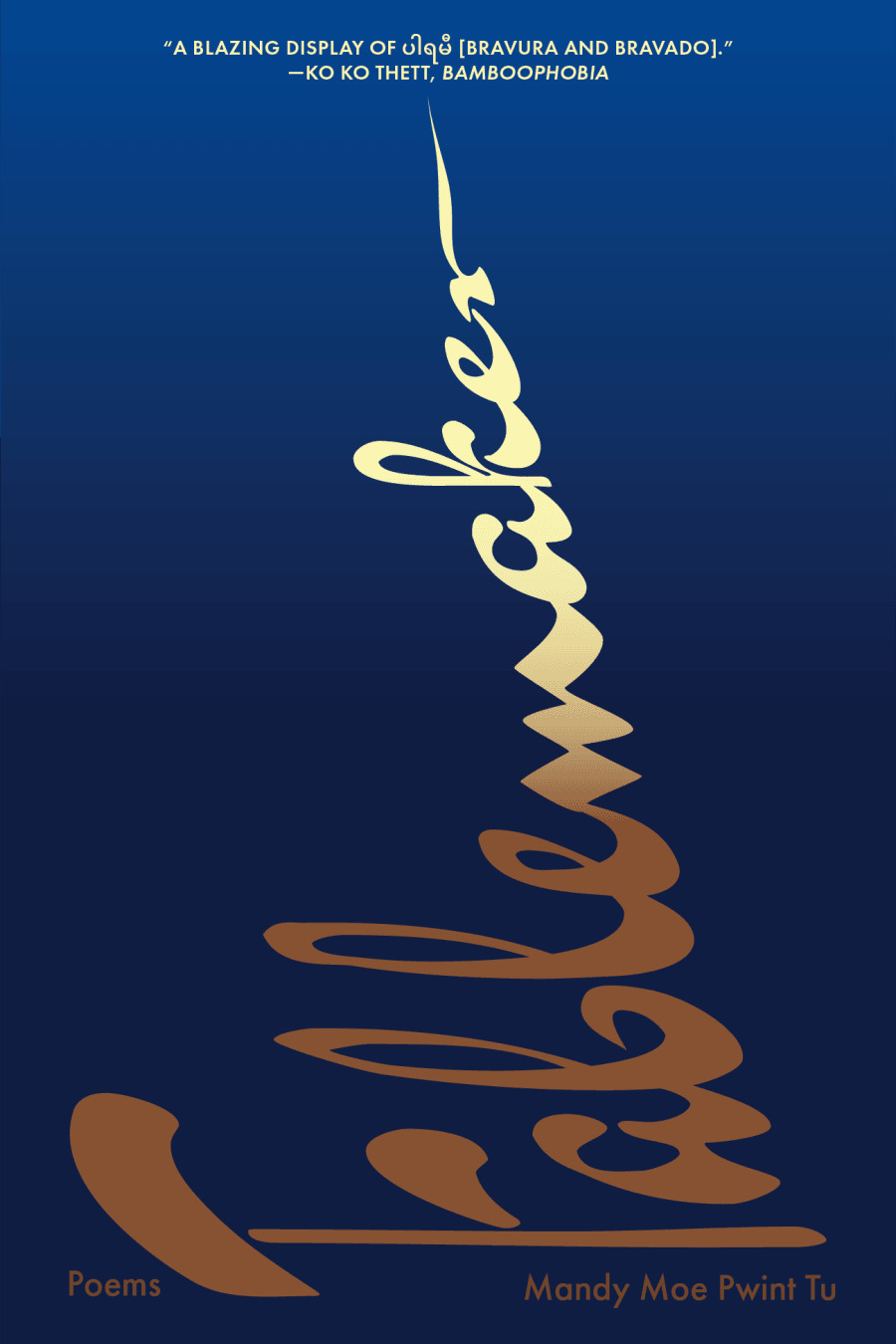Mandy Moe Pwint Tu describes herself as “a pile of ginkgo leaves in a trench coat from Yangon, Myanmar”; it perhaps comes as no surprise that she is a poet. She is also one now firmly ensconced in American poetry circles and with an MFA under her belt. Fablemaker is her first full-length collection and includes poems from her earlier chapbooks.
The collection is what it says on tin. Tu quotes the Nigerian poet Maryhilda Obasiota Ibe in one introductory epigram— “I became a poet to understand how / so close to one another memory and fable can live inside us”—and American poet (of Chinese-Indonesian extraction) Li-Young Lee “the teller survives / by his telling;” in another, themes which become leitmotifs of a sort for the selection as a whole.
Tu’s narrative and descriptive skills are much in evidence.
Although many of her fables are about others—her parents figure in a great many as does Burma and its political tribulations—one of the most evocative is about herself. In “Burmese Pygmalion”, Tu dreams “I’m Eliza Doolittle,” but despite
… Waking, scrawl out every grammatical rule
on thinning paper, round letters curving to almost cursive, i before e
except after c; a sentence must contain a subject and a predicate;
her past remains: “I speak my Burmese in whispers” and contends with those “who say English literature is difficult for Burmese students and mean it’s not for you.”
Tu’s narrative and descriptive skills are much in evidence. The several-pages-long long poem “Monsoon Daughter Tries Narrative Therapy” starts
On a veranda in Yangon, my mother watches for pigeons.
She hates when they hack at the strings of seeds, mutters:
Greedy bastards. Even the crows are respectful.
They wait their turn.
This, in the heat rising from the pavement,
in the putrid pallor of the monsoon.
What a thing to tell the hungry,
that turns are to be waited for.
My mother bears no love for pigeons,
or men in green coats with eyes like bullets.
For those who know Burma—or Myanmar as it now is—many passages and entire poems will resonate.
Politics is never far from the surface and although Tu writes more about Burma than the US, her frustration is palpable:
As a Humanities scholar I get to pay $470 for one year of work authorization to
keep writing poems about how my country is burning
STEM scholars get three years and they don’t even write poems
Her politics can be forceful, or wistful, as in “When I am a Mother” and imagining her daughter to be:
When she tells me she will change the world,
I will take her to the muddy ripples
of the Ayeyarwady and teach her
the meaning of a single droplet.
Can poetry change politics? Perhaps not, but it’s important nonetheless.
At the museum, three Buddha statues.
Golden script scrawling on their daises,
a clattering of offering bowls & upturned
mouths. I press my palms together
to these lacquered figures, & pray.
Words settle on the glass between us,
but I’m not sure they hear.
For those who know Burma—or Myanmar as it now is—many passages and entire poems will resonate. Those that don’t can instead focus on the humanity of Tu’s collection.

